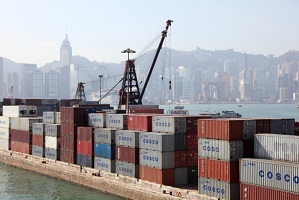Following months of talks between US and Chinese negotiators that many hoped would bring an end to the ongoing trade dispute between the two nations, the Trump administration announced last week that it is raising tariffs on $200 billion of products from China from 10% to 25%. In retaliation, the Chinese government on Monday said that it would be levying tariffs on $60 billion worth of American imports, which would range from 5% to 25%.
This latest round of tariffs will not only mean higher prices for American consumers, but will also significantly impact industries across the board, including security. What will the security industry businesses experience? Although the impact of “Chapter 99” is limited, there is a high impact section, but first we need to understand what is subject to the additional 25% duty.
Under this implementing modification summarized by the Office of the United States Trade Representative (USTR), products of China that are covered by the September 2018 action that were exported prior to May 10, 2019, are not subject to the additional duty of 25 percent as long as such products are entered into the United States prior to June 1, 2019. Such products remain subject to the additional duty of 10 percent for a transitional period of time before June 1, 2019. The covered products of China that are entered into the United States on or after June 1, 2019, are subject to a 25 percent rate of additional duty.
A wide range of solar panels and solar systems used in residential, commercial applications, security lights and “off-grid” camera and communications systems is specified in a very complex manner, citing the following, yet referring to past tariff schedules and multiple citations in the Chapter 99 document, including:
• 10 to 60-watt rectangular solar panels.
• 1-watt solar panels incorporated into nightlights that use rechargeable batteries.
• 2-watt solar panels incorporated into daylight dimmers that may use rechargeable batteries.
• “Off-grid” and portable crystalline silicon photovoltaic panels” (“CSPV panels”) whether in a foldable case or in rigid form containing a glass cover. These are typically used in portable security camera and communications systems.
Since inventory levels may not be high and a small to mid-sized security business is not able to absorb the additional costs in an outright sale or leased solar system, prices will most likely be passed on to the user.








